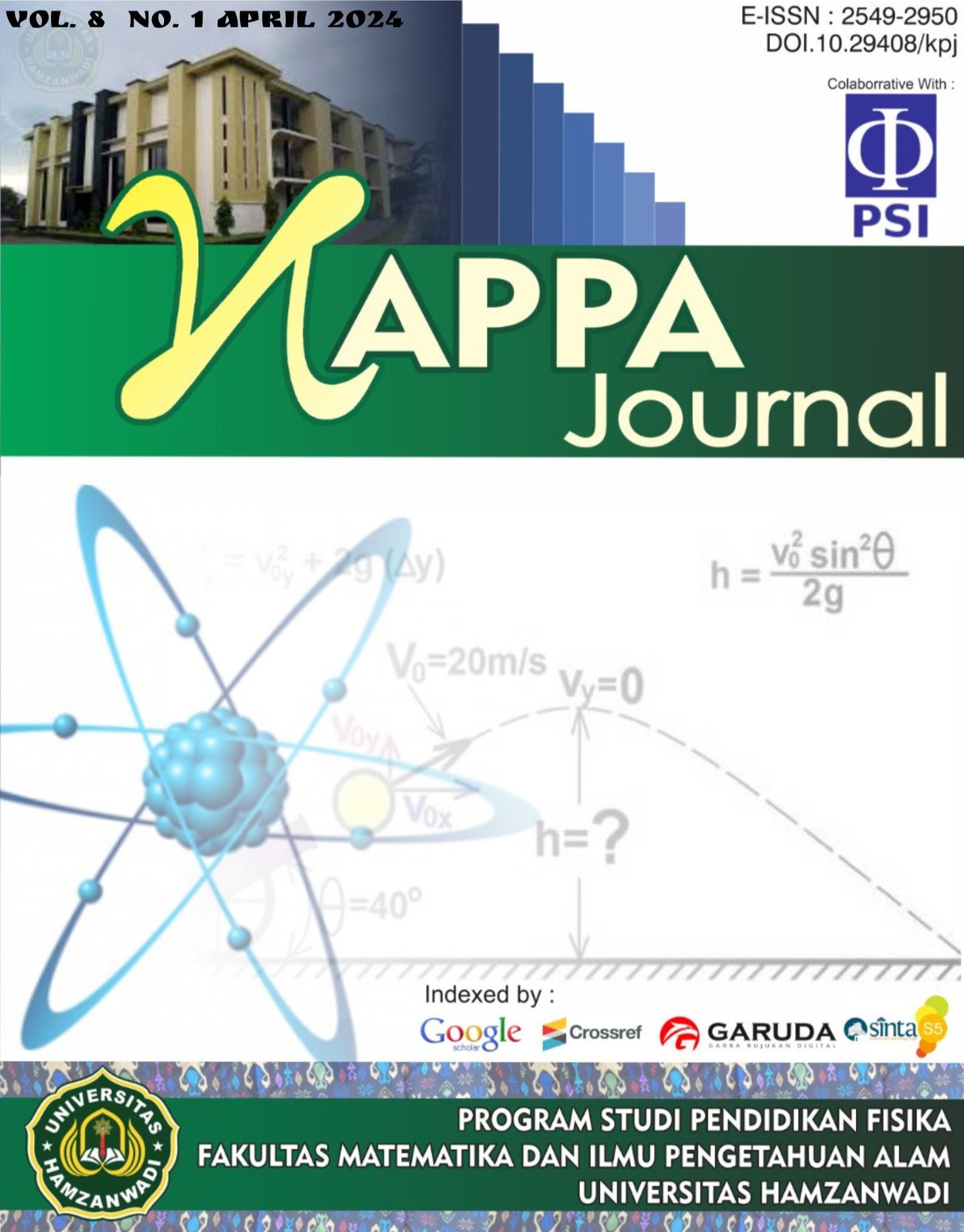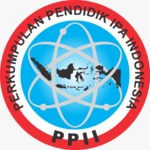Magnetic Measuring Instrument Based on Arduino Uno Microcontroller and its Implementation as A Learning Medium
DOI:
https://doi.org/10.29408/kpj.v8i1.24447Keywords:
Magnetic Measuring Instrument, Arduino Uno Microcontroller, Learning Media, Learning Outcomes.Abstract
This study aims to develop a magnetic measuring instrument based on Arduino Uno microcontroller and apply the results as a learning medium to measure student achievement. This tool is designed to provide precise magnetic measurements using sensors integrated into the Arduino Uno. The measurement method implemented in this tool allows users to obtain magnetic data accurately and efficiently. This research is a Research and Development research using a five-stage ADDIE model. In preparation for the study, the analysis stage has been carried out. The Design, Development, and Implementation stages are carried out at the stage of research implementation. Evaluation is carried out at every stage starting from preparation, implementation to research reporting. The results of the research obtained based on the validation of material and media experts obtained an average value of 81 with a very feasible category so that the Arduino Uno microcontroller-based magnetic measuring instrument can be used in classroom learning. The results of the post test and pritest revealed that the Arduino Uno microcontroller-based magnetic measuring instrument proved effective in improving student learning outcomes with an N-Gain value of 0.76 in the high category. The implementation of this magnetic measuring instrument not only focuses on technical aspects, but also on its use as a learning medium. With a simple interface design and clear user guidance, the tool is expected to provide an interactive and effective learning experience. Users can understand the concept of magnetism and apply it in a practical context with the help of this tool. This research contributed to the development of magnetic measuring instruments that are affordable, easy to use, and can be applied in various learning contexts. Thus, the results of this research can be a reference for the development of similar technologies and provide benefits in the field of science and technology education.
References
Dwicahyaning, Eryna, Alex Harijanto, Silvia Ainur Rohma, Haniyah Alivia, Pendidikan Fisika, and Universitas Jember. 2018. “RANCANG BANGUN ALAT PRATIKUM FISIKA UNTUK.”
Fajrin, Virgiani Pangestika, Yayat Ruhiyat, and Dina Rahmi Darman. 2021. “Pengembangan Alat Peraga Fisika Crane Magnetic Pokok Bahasan Medan Magnet Pada Selenoida.” Jurnal Luminous: Riset Ilmiah Pendidikan Fisika 2(1):1. doi: 10.31851/luminous.v2i1.5134.
Fenanlampir, Albertus, Marleny Leasa, and John Rafafy Batlolona. 2021. “The Development of Homogeneity Psycho Cognition Learning Strategy in Physical Education Learning.” International Journal of Evaluation and Research in Education 10(3):1047–59. doi: 10.11591/IJERE.V10I3.21713.
Fitriani, Herdiyana, Taufik Samsuri, Fida Rachmadiarti, and Raharjo Raharjo. 2022. “Characteristics of Evaluation-Process Biology Learning Tools Based on Conceptual Problem-Based Learning Models to Train Critical Thinking Skills.” Jurnal Penelitian Pendidikan IPA 8(1):269–76. doi: 10.29303/jppipa.v8i1.1168.
Ghoni, Musaffiriyan Rasyid, Andi Dharmawan, and Slamet Santosa. 2015. “Rancang Bangun Sistem Pengukuran Medan Magnet Menggunakan LabVIEW, CONTROLLER NI CRIO-9022, Dan DTM-151 Digital Teslameter.” IJEIS (Indonesian Journal of Electronics and Instrumentation Systems) 5(2):133. doi: 10.22146/ijeis.7637.
Imamora, Marjoni, Ali Umar, Dany Kurniawan, and Novia Lizelwati. 2021. “Fabrication of Digital Harmonic Vibration Practicum Using Phototransistor Sensor with Arduino-Uno Microcontroller.” Jurnal Penelitian Pendidikan IPA 7(3). doi: 10.29303/jppipa.v7i3.835.
Khairati, Khairati, Wiwit Artika, Muhammad Ali Sarong, Abdullah Abdullah, and Hasanuddin Hasanuddin. 2021. “Implementation of STEM-Based Experiential Learning to Improve Critical Thinking Skills on Ecosystem Materials.” Jurnal Penelitian Pendidikan IPA 7(4):752–57. doi: 10.29303/jppipa.v7i4.850.
Kholis, Nur, Muhamad Syariffuddien Zuhrie, and Reza Rahmadian. 2018. “Innovation Online Teaching Module Plus Digital Engineering Kit with Proteus Software through Hybrid Learning Method to Improve Student Skills.” IOP Conference Series: Materials Science and Engineering 336(1). doi: 10.1088/1757-899X/336/1/012036.
Liana, Yeni Rima, Suharto Linuwih, and Sulhadi. 2020. “Science Activity for Gifted Young Scientist: Thermodynamics Law Experiment Media Based IoT.” Journal for the Education of Gifted Young Scientists 8(2):757–70. doi: 10.17478/JEGYS.657429.
Matsun, Boisandi, I. N. Sari, S. Hadiati, and D. F. Saputri. 2021. “The Effect of Physics Learning Using Ardouno Uno Based Media on Higher-Order Thinking Skills.” Journal of Physics: Conference Series 2104(1). doi: 10.1088/1742-6596/2104/1/012014.
Neswary, Shalsa Billa Ardhana, and Binar Kurnia Prahani. 2022. “Profile of Students’ Physics Critical Thinking Skills and Application of Problem Based Learning Models Assisted by Digital Books in Physics Learning in High School.” Jurnal Penelitian Pendidikan IPA 8(2):781–89. doi: 10.29303/jppipa.v8i2.1444.
Pramuda, Adi, Soka Hadiati, and Hendrik Pratama. 2023. “Development of Density Meter Learning Media Using Arduino Uno to Improve Critical Thinking Abilities.” 9(10):8321–27. doi: 10.29303/jppipa.v9i10.5207.
Purnamawati, Purnamawati, Muhammad Akil, and Nuridayanti Nuridayanti. 2021. “Analysis of Needs for the Development of Trainer Sensor and Transducer Learning Media Based on Internet of Things (IoT).” Jurnal Pendidikan Vokasi 11(2):232–42. doi: 10.21831/jpv.v11i3.43833.
Putri, Hanung Vernanda, Yohanes Radiyono, and Indra Budi Setiawan. 2022. “Pengembangan Alat Percobaan Induksi Magnetik Pada Kawat Melingkar Berarus Dengan Hall Effect Sensor UGN3503.” Jurnal Materi Dan Pembelajaran Fisika 12(1):44. doi: 10.20961/jmpf.v12i1.61193.
Rahman, Muhammad Matori, Aris Doyan, and Sutrio Sutrio. 2021. “Efektifitas Perangkat Pembelajaran Pendekatan Multi Representasi Berbantuan Video Untuk Meningkatkan Kemampuan Berpikir Kritis Peserta Didik.” Jurnal Penelitian Pendidikan IPA 7(SpecialIssue):56–60. doi: 10.29303/jppipa.v7ispecialissue.1063.
Waruwu, Leni Yanti, Aidhia Rahmi, and Megasyani Anaperta. 2021. “Rancang Bangun Alat Ukur Medan Magnet Berbasis Arduino Uno Menggunakan Sensor Efek Hall.” Semesta Teknika 24(2):129–39. doi: 10.18196/st.v24i2.12938.
Downloads
Published
Issue
Section
License
Copyright (c) 2024 Kappa Journal

This work is licensed under a Creative Commons Attribution-ShareAlike 4.0 International License.
Semua tulisan pada jurnal ini menjadi tanggungjawab penuh penulis. Jurnal Kappa memberikan akses terbuka terhadap siapapun agar informasi dan temuan pada artikel tersebut bermanfaat bagi semua orang. Jurnal Kappa dapat diakses dan diunduh secara gratis, tanpa dipungut biaya, sesuai dengan lisensi creative commons yang digunakan








